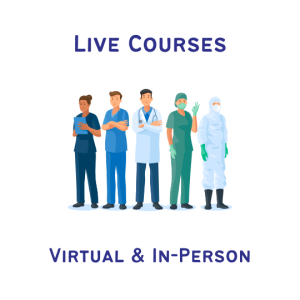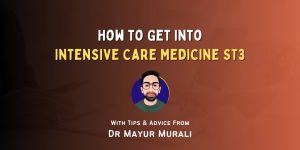
Published July 11, 2023 | Updated August 10, 2023
By Kuvira Manamperi
Hey there! I’m Kuvira, a junior doctor trying to navigate my way through NHS. I’m excited to share my insights and experiences with you!
Starting as a Foundation Year 1 doctor in the NHS can be quite daunting.
Amidst the pressures of patient care, long workdays, and a sense of duty, guilt often creeps in. Various situations can trigger feelings of guilt, and as junior doctors, we grapple with its complexities and the toll it takes on our well-being.
In this blog, I’d like to share my personal experiences with intense guilt and how I endeavoured to overcome it.
Prioritising Our Health
Letting Go of Guilt When Calling in Sick
Navigating professional responsibilities as a junior doctor at the beginning of our careers can be immensely stressful. Looking back, there were instances when I ignored my own physical signals and pushed myself beyond my limits.
I vividly recall times when I showed up to work despite feeling unwell and disoriented. In those moments, guilt consumed me, as I worried about compromising patient care and burdening my colleagues. However, over time, I came to realise that prioritising my own health is essential for delivering effective and sustainable care. By reducing guilt and recognising the importance of self-care, I created a healthier work environment.
It became evident to me that calling in sick when genuinely ill is not only responsible but necessary for everyone involved.
Navigating the Demands
Overcoming Guilt When Handing Over Unfinished Tasks
The workload as a junior doctor is often overwhelming, given the fast-paced and unpredictable nature of the job. Despite my best efforts to organise and prioritise, there were occasions when I couldn’t complete all the tasks within a single shift. This was especially true when caring for critically ill patients, where their needs demanded significant attention and time.
Consequently, I experienced guilt when passing on unfinished work to the next team, concerned about its impact on patient care and the burden it placed on my colleagues. During such moments, I had to evaluate my time management skills and identify areas for improvement.
Importantly, I had to accept my limitations as a human being. I learned to forgive myself, acknowledging that I couldn’t operate at 100% efficiency all the time.
By embracing this perspective, I fostered personal growth and a healthier approach to managing guilt.

Beyond Our Control
Coping with Deteriorating Patient Conditions
Even with the best efforts of the entire healthcare team, there are occasions when patients do not respond favourably to treatment and their condition worsens.
I vividly remember a night shift where I cared for a patient who initially showed signs of improvement, only to tragically pass away a few days later. The news filled me with immense remorse and self-doubt. I questioned my skills and carried the weight of personal accountability. However, I’ve come to realise that patient outcomes are influenced by numerous factors beyond our control.
To productively address this guilt, I sought guidance from experienced colleagues and engaged in reflective practices. Additionally, I recognised the significance of providing comfort and compassionate care to patients nearing the end of their lives.
By accepting limitations, embracing continuous learning, and working as part of a team, I strive to deliver the best care possible while managing the emotional challenges and guilt that arise along the way.
Turning Mistakes into Growth
Embracing Reflection and Learning from Medical Errors
As a junior doctor, I’ve experienced the overwhelming guilt that accompanies medical errors.
Whether it’s a minor prescribing mistake or booking the wrong scan, mistakes can occur despite our utmost care and diligence.
It is important to acknowledge these errors, communicate honestly, and take appropriate actions to rectify them. However, I’ve also learned the importance of forgiving myself and recognising my own humanity. Fostering a culture of transparency and learning from mistakes not only helps alleviate guilt but also promotes patient safety and professional development.
Beyond the Constraints of Time
Fulfilling Commitments Amidst Hectic Shifts
There are instances when I confront the reality of having limited time during busy shifts as a junior doctor on call.
It becomes challenging to thoroughly assess each patient’s condition, address their concerns, and provide detailed explanations. The constant time constraints and the pressure of caring for multiple patients simultaneously can be exhausting. I strive to offer each patient the care and support I believe they deserve, but the limitations of time occasionally make me feel that I could have done more or provided greater attention if given more time.
Understanding the value of establishing personal connections with patients and the positive impact it can have on their overall experience is crucial. However, the demands of on-call settings can make it challenging to accomplish this consistently.
To address this, I’ve learned to prioritise tasks effectively and improve my time management skills, allowing me to maximise patient engagement and ensure that, even during hectic shifts, patients receive the respect and care they require. I’ve also recognised the importance of understanding my own limitations.
Balancing Personal and Professional Lives
Striking a balance between demanding schedules and unpredictable workloads can be a constant challenge.
Guilt often arises when personal commitments are compromised due to work obligations. I recall instances when I postponed personal goals due to exhaustion. However, I’ve come to understand that self-care is crucial and does not equate to a lack of dedication.

Embracing Change
Overcoming Guilt and Pursuing Fulfillment
Considering a job transition can evoke guilt, particularly due to the prevailing “overworked and underpaid” culture in the NHS. Parental expectations and the financial commitment to medical school further amplify this guilt.
However, prioritising one’s own well-being and exploring job opportunities that align with personal values and goals is essential. To manage guilt and pursue a fulfilling professional life, open communication with parents, understanding the broader implications of career changes, re-evaluating personal beliefs, and practising self-compassion are key.
Distance and Devotion as an International Medical Graduate (IMG)
As an IMG starting my career in a foreign country, the guilt of being away from my family and support systems weighs heavily on me.
The distance creates a profound sense of responsibility and regret, as I often cannot be physically present for important family occasions and milestones. The demanding work schedules only exacerbate these feelings, as I sometimes feel inadequate in providing the emotional support my loved ones may need. These factors magnify the guilt I experience.
Balancing personal and professional demands is an ongoing struggle for me as an IMG. I find myself torn between using my limited annual leave for family visits and recognising the importance of self-care and rejuvenation. This perpetual dilemma contributes to increased stress levels, emotional exhaustion, and the risk of burnout.
To navigate these overwhelming feelings of guilt, I am learning to acknowledge the challenges I face and seek support when needed. Finding a balance between personal and professional commitments, fostering open communication with loved ones, and prioritising self-care has become crucial in managing guilt, promoting my well-being, and ensuring a sustainable career as an IMG.

Embracing Resilience and Self-Compassion
In the challenging journey of a junior doctor, navigating the emotional burden of guilt is a constant endeavour. By recognising our limitations, prioritising self-care, fostering a culture of learning, and seeking support, we can overcome guilt and continue to grow both personally and professionally.
Embracing compassion and resilience, we strive to provide quality care while acknowledging the importance of our own well-being. In this noble profession, addressing guilt allows us to sustain our dedication and make a positive impact on the lives of our patients.













